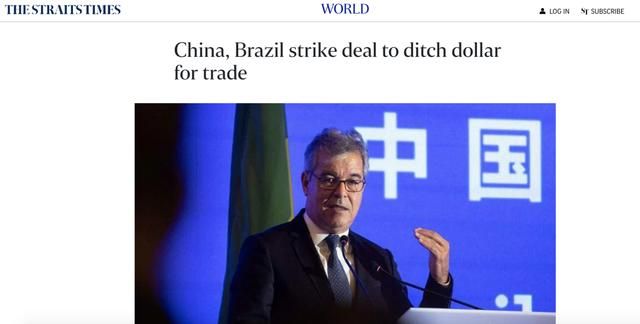According to Agence France-Presse and other foreign media reports on March 30, the Brazilian government stated on Wednesday that Brazil has reached an agreement with China to no longer use the US dollar as an intermediate currency, but to use its own currency for trade settlement. The report described this as Beijing's "latest surprise attack" on the dollar.

The agreement allows China, the top rival to U.S. economic hegemony, and Brazil, Latin America's largest economy, to conduct large-scale trade and financial transactions directly, exchanging yuan for real and vice versa, rather than through dollars.
"This is expected to reduce costs while promoting greater bilateral trade and facilitating investment," the Brazilian Trade and Investment Promotion Agency (ApexBrasil) said in a statement.
It is reported that China has similar agreements with Russia, Pakistan and other countries.
The Associated Press reported that the latest data show that China is Brazil's largest trading partner, accounting for more than one-fifth of Brazil's total imports, followed by the United States. China is also Brazil's largest export market, accounting for more than one-third of all Brazilian exports. Last year, the bilateral trade volume between China and Brazil reached a record high of US$150.5 billion. Today, Brazil is the largest recipient of Chinese investment in Latin America, mainly in high-voltage transmission lines and oil exploration.
According to the news released on the website of the People's Bank of China in February 2023, recently, the People's Bank of China and the Central Bank of Brazil signed a memorandum of cooperation on the establishment of RMB clearing arrangements in Brazil. The establishment of the RMB clearing arrangement in Brazil will help Chinese and Brazilian enterprises and financial institutions use RMB for cross-border transactions, and further promote bilateral trade and investment facilitation.
